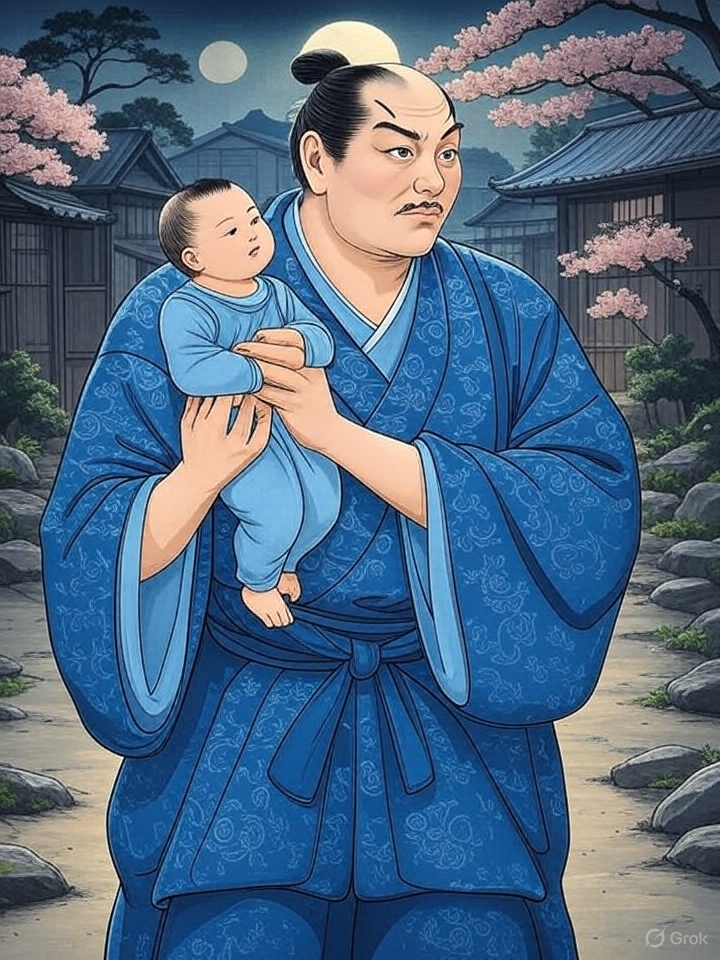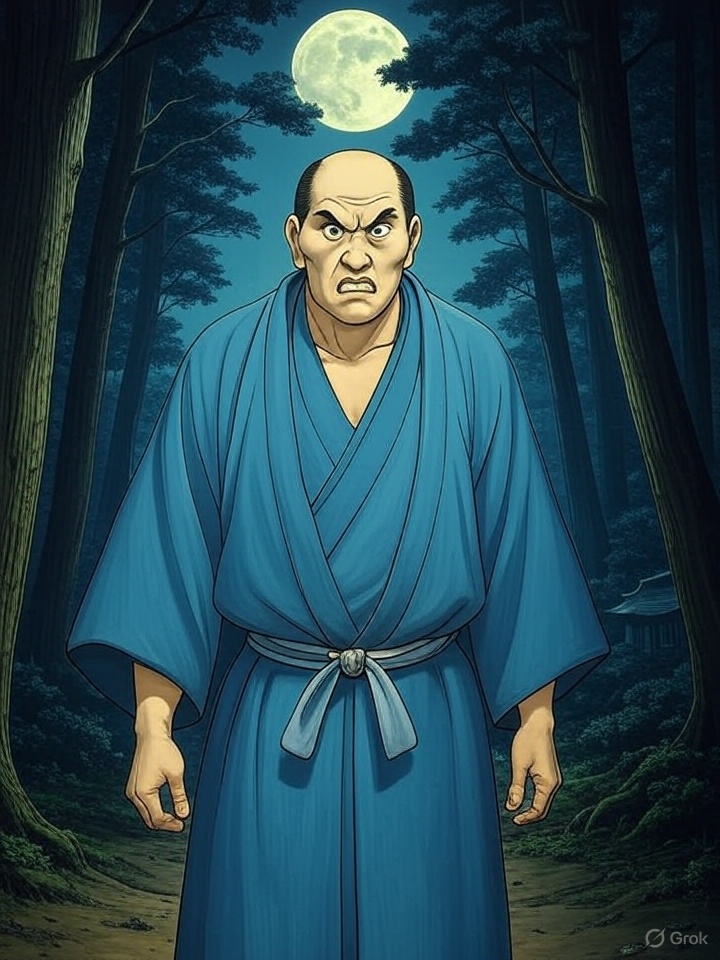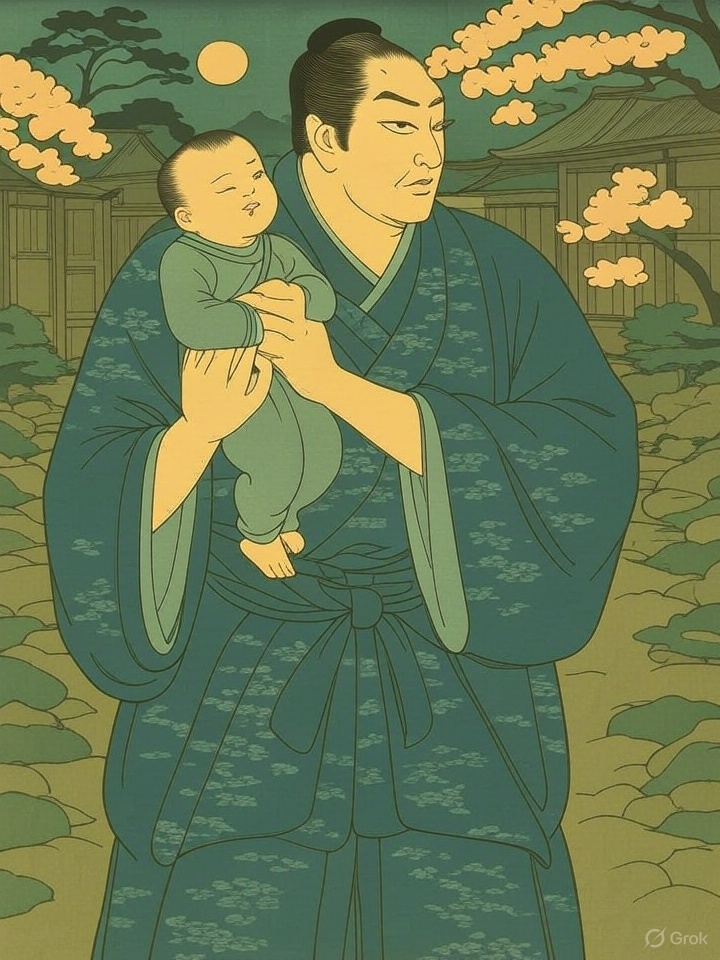Name Meaning
Overview
\n
Aobōzu (青坊主) literally means “blue monk.” Despite his name, he is not a peaceful figure—this yōkai is feared for luring and kidnapping children in remote mountain villages.
- Ao (青) = Blue
- Bōzu (坊主) = Monk → “Blue Monk”
Origin
- Legends of Aobōzu appear in multiple rural regions across Japan, especially in mountainous or forested areas.
- He is often portrayed as a cautionary figure to keep children from wandering too far from home.
Appearance
- Appears as a tall, bald monk-like man with bluish or pale blue skin.
- Wears simple robes, but his gaze and presence are eerie and unnatural.
- Sometimes depicted with glowing eyes or a creepy grin.
Behavior
- Known for abducting or scaring children who are alone at dusk or straying into the woods.
- In some stories, he appears in towns just before a child disappears mysteriously.
- Other tales depict him as a test of courage—those who show bravery can scare him off.
Symbolism
- Serves as a moral warning and community safety figure, especially for younger children.
- May represent the danger of false appearances—a calm-looking monk who harbors malice.
- Seen as part of the broader category of disciplinary yokai who enforce obedience through fear.



